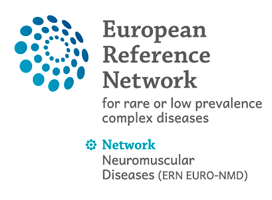How has RD-ACTION supported the conceptualisation and implementation of European Reference Networks?

Authors:
Victoria Hedley (Victoria.Hedley@newcastle.ac.uk), Victoria Hedley, Matt Boltz-Johnson, Valentina Bottarelli, Kate Bushby and Hannah Murray
RD-Action (‘Data and Policies for Rare Diseases’), like the EUCERD Joint Action before it, has played a key role in supporting the conceptualisation and implementation of European Reference Networks (ERNs). The Policy WP, led from Newcastle by Kate Bushby and Victoria Hedley, focussed many of its activities on the topic of ERNs, working to address specific issues such as how ERNs will: leverage eHealth solutions; share and re-use data; interact with patient registries; develop best practice guidelines; interact with Industry, regulatory bodies etc.; and conduct research. RD-ACTION supported the rare disease and specialised care field in organising itself into 24 comprehensive, robust ERNs. EURORDIS partners ensured meaningful, active patient involvement in each Network via the concept of ePAGs (European Patient Advisory Groups). Now that the Networks are in place, the goal of the RD-ACTION Policy WP workplan is to continue to provide support to the rare disease community in conceptualising, implementing and evolving robust ERNs capable of meeting the needs and expectations of people living and working with conditions requiring a specific concentration of expertise. As the ERNs are established and evolve, shared consensus guidance is important to support the Networks but also to ensure a baseline compatibility and interoperability (at various levels) between the ERNs. This poster demonstrates some of the key successes of RD-ACTION to-date, and illustrates the workshops planned in the coming year to support the Networks in addressing some of their common policy-related challenges.

